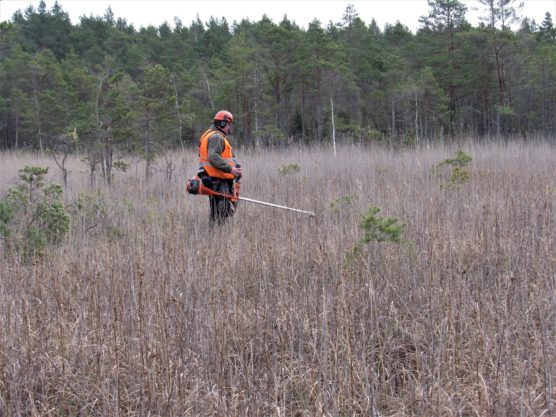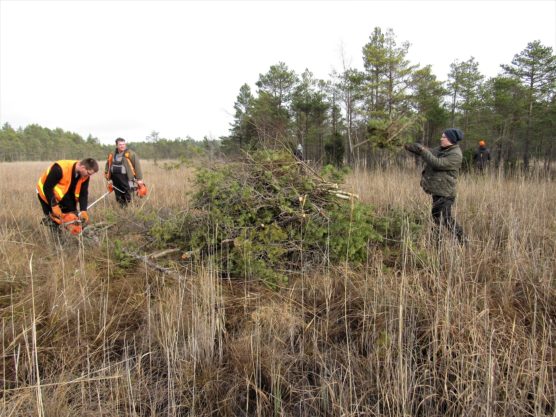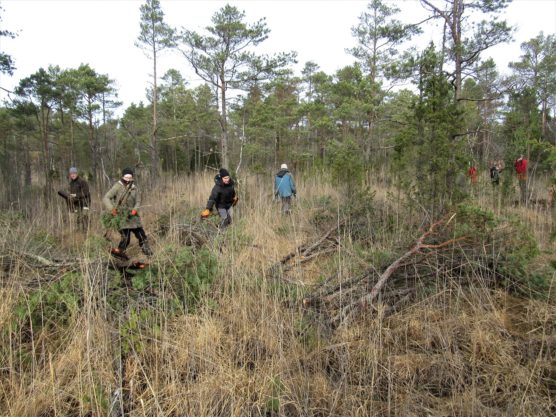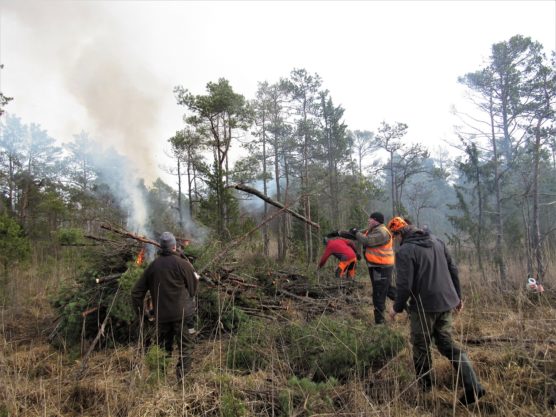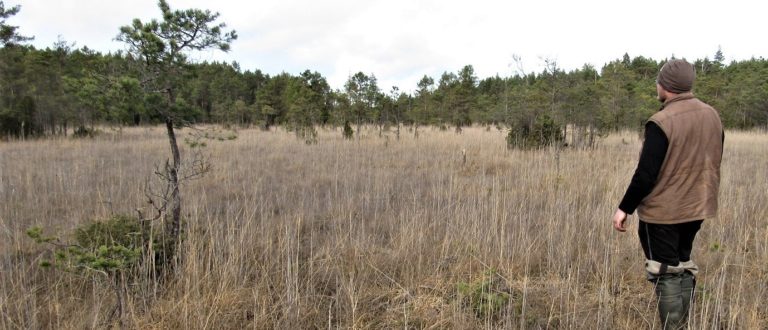In January and February 2020, restoration work was carried out in Engure, one of LIFE Peat Restore project areas in Latvia. The work was organised by the Lake Engure Nature Park Fund. In total 20 hectares of shrubs and young trees were cleared and removed from the overgrown parts of the fen. It has created as mosaics of open fen and drier elevations with forested “islands” and clusters of older pines and junipers.
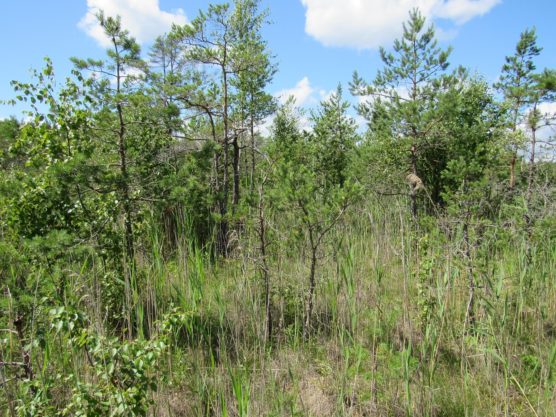
The alkaline fens around Lake Engure are one of habitat and species richness “hotspots” in Latvia, a representative example at national scale. The fens are particular with high species richness and large number of rare, threatened species (e.g. Ophyrus insectifera, Liparis loeselii, Dactylorhiza cruenta, Primula farinosa, Schoenus ferrugineus, Cladium mariscus, and many other). In geological sense, the fens are very young, as they began to develop on the former bottom of the lake after artificial lowering the water table in 1842. The fens are to some extent semi-natural, because they have developed under moderate impact of grazing, as the area was historically used a forest pasture for cattle from the nearby village. In the last decades, this type of grazing practise is ceased, and the fens are overgrowing with shrubs and trees. This has caused decline of diversity and, by increasing cover of treesm may disrupt formation of fens. Therefore, to enable continuity of open fens and peat accumulation, to support the related biodiversity, restoration is needed.
During the project, we have developed a detailed management plan for the project area (in Latvian), and the recent activities were part of its implementation. Soon, the work will be continued to block the ditches outflowing from the fen area to reduce the water table fluctuations and keep the area wet.
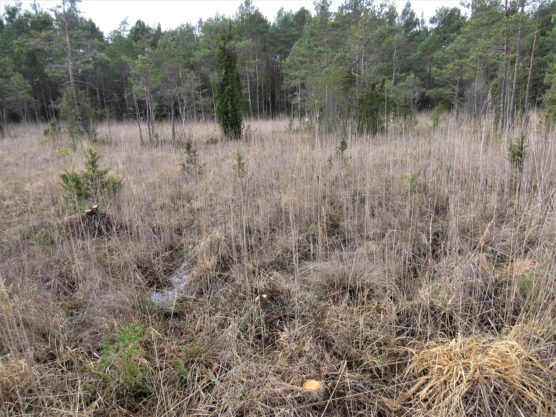
Key stakeholders also participated in the event, such as the Nature Conservation Agency and JSC Latvia’s State Forests, several local inhabitants, the managers of the area and the LIFE Peat Restore experts (University of Latvia, Lake Engure Nature Park Fund). The join work allowed learning more about this type of management, to try doing with our own hands and to discuss the options to apply similar management elsewhere. The work done is a significant contribution to conservation of alkaline fens in this area. We hope that this may encourage also other managers of similar areas to restore similar habitats which are highly valuable and are nowadays declining. We thank all participants!
